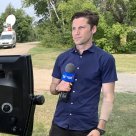More people got vaccinated because of the Saskatchewan government’s proof of vaccination policy, according to a new study.

The paper, from the University of Saskatchewan’s Social Contours and COVID-19 research team, shows more people received first and second doses after Premier Scott Moe announced the province’s new proof of vaccination system on Sept. 16.
First doses more than doubled, and second doses increased between Moe’s announcement and Oct. 1, when the requirement went into effect.
Would-be entrants to venues like bars and concerts can also show a recent negative COVID-19 test, but must pay for the test themselves if they are not experiencing symptoms of the disease, or have come in close with someone infected, among other conditions.
But since the system came into effect, the rates of first doses have dropped while the rate of second doses plateaued.
One of the authors of the study told Global News the declining rate of first doses and constant rate of second doses is a good thing. It means the people who are getting their first doses are getting their second.
Nazeem Muhajarine said he expects the number of people getting their second dose to drop in a few weeks as well, once the people who were open but perhaps hesitant to getting vaccinated got their shots.
- Life in the forest: How Stanley Park’s longest resident survived a changing landscape
- ‘They knew’: Victims of sexual abuse by Ontario youth leader sue Anglican Church
- Carbon rebate labelling in bank deposits fuelling confusion, minister says
- Buzz kill? Gen Z less interested in coffee than older Canadians, survey shows
“We knew that when we introduce proof of vaccination policies, it would move people who are maybe… on the fence, not for ideological reasons, not value-based reasons for refusing vaccines, but mostly because of convenience to get vaccinated,” he said.
However, he said the policy hadn’t reached everyone.
“I would have wished that it could have continued to reach those hardcore vaccine refusers,” he said, “but we do know that the vaccine policy itself is probably not going to convert those people.”
A new national survey from the Angus Reid Institute, a public opinion research foundation, shows 58 per cent of unvaccinated people who aren’t sure if they will get the jab say personal freedom and health concerns are their main reasons for not getting the shot.
Nearly a third said they don’t believe COVID-19 is a serious health threat.
Five million people died from the disease, or complications from it, as of Monday.
Angus Reid president Shachi Kurl stressed anti-vaccine Canadians are a very small, if vocal, group. She also told Global News they are typically younger and male and “believe they’re healthy enough to be able to withstand whatever comes at them.”
The survey also shows 55 per cent of respondents believe COVID-19 is a conspiracy that is all about government control.
Kurl said that shows how much misinformation people are consuming.
“It really does give us some insight into the fact that people don’t trust our institutions and, more than that, are willing to believe that our institutions are out there telling us lies,” she said, speaking from Vancouver.
“And I think that’s pretty striking.”
Muhajarine said the province must still push towards herd immunity because people are moving inside as the weather turns colder and because children will likely soon become eligible for vaccines.
“The next challenge that we face to get to that 85 to 90 per cent (vaccination rate) is to make sure that the proof of vaccination policy covers schools,” he said.
Vaccination needs to continue, he told Global News, because the Delta variant is deadly, very transmissible and not going away.






Comments